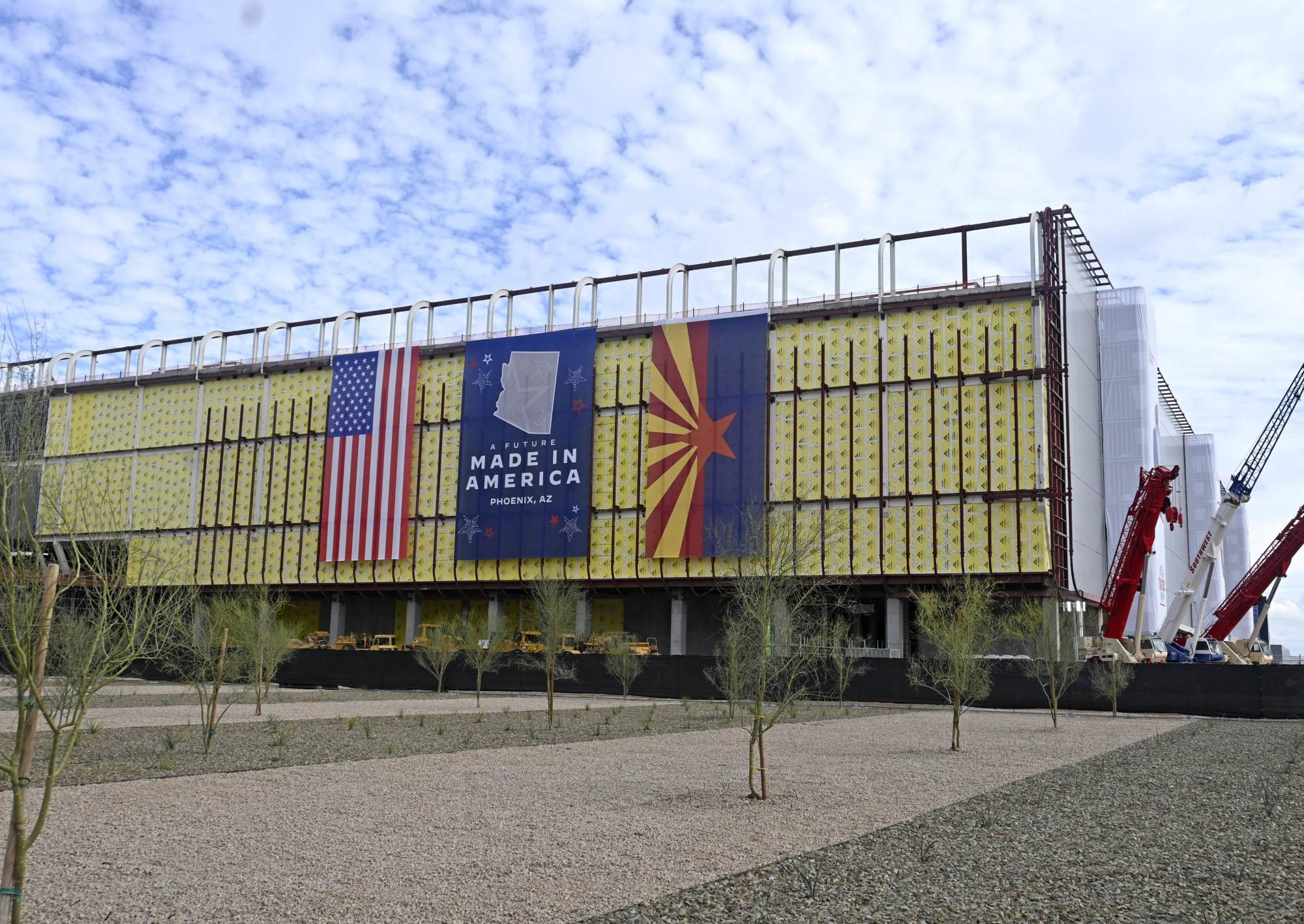
Taiwan’s hi-tech jewel is quietly fighting US industrial capture
- No thanks to Tsai, TSMC is waking up to the danger of Washington’s ‘friendshoring’ of its most advanced chip-making capabilities
Sanity has returned to Taiwan, at least temporarily. TSMC last week announced that most of its valuable chips will still be produced on the island. This is despite intense pressure from the Joe Biden White House to “friendshore” TSMC’s most advanced chipmaking capacities, including those for the next-generation chips, to the United States.
Taiwan alone produces more than 60 per cent of the world’s semiconductors and 90 per cent of the most advanced ones; at the apex is TSMC, the world’s biggest contract chip maker.
While President Tsai Ing-wen and her Democratic Progressive Party have effectively capitulated to the US demands, the island’s public and its business elite have realised giving up the jewel in their manufacturing crown is a bridge too far.
They have belatedly realised the Faustian bargain the Tsai government has made for them by going over completely to the American side. Hopefully, they will translate that realisation in the coming election next year.

“A majority of [these advanced chips] will be made in Taiwan,” TSMC’s chief executive C.C. Wei told shareholders last week.
According to its latest announcement, only about 20 per cent of its 28-nanometre (nm) chips and more advanced ones will be made at plants outside Taiwan in the foreseeable future.
That likely means only a fraction of that 20 per cent would go to the chip plant now being built by TSMC in Arizona to placate the Biden administration. It won’t start operations until 2025 at the earliest.
And while it may be able to produce the 5nm chips, the latest 3nm ones will have to wait, not least because of a lack of domestic expertise, meaning it may end up having to compete for Taiwanese specialists.
Cognisant of the geopolitical significance of its decision, company chairman Mark Liu added: “I think Taiwan’s semiconductor industry plays a stabilising role amid global geopolitical tensions. Whether it’s China or the United States … they all hope that TSMC is around.”
He is reaffirming the validity of the so-called “chip shield” to protect the status quo in the Taiwan Strait and security for the island. Simply put, everyone needs Taiwan to be safe and sound because everyone needs chips.
However, it’s hard to see how “friendshoring” of the best chips from Taiwan to the US would benefit anyone other than the Americans.
The US argument is that in the event of a mainland China invasion, the Chinese would disrupt the global supplies of valuable chips and steal the most advanced chipmaking technology.
That’s unlikely. While Beijing would love to lay its hands on Taiwan’s advanced semiconductor foundries, it’s far more likely they would be destroyed before it could gain control, as Washington has explicitly warned. Last month, Seth Moulton, a Democratic congressman, spoke of “making it clear to the Chinese that if you invade Taiwan, we’re going to blow up TSMC.”
Instead, the very real threat is pointed out in a Foreign Policy article not too subtly titled, “Taipei Fears Washington Is Weakening Its Silicon Shield: New US policies are eroding Taiwan’s dominance of the global chip industry. Will that jeopardise the island’s security?”
Under Tsai, business has been a gravy train for the Americans. The US military industry has been selling old weapons to the island at inflated prices. Now under Biden’s new industrial policy, Tsai is ready to give up the island’s most valuable industrial asset just so the US can rebuild its old manufacturing base. Talk about industrial capture without firing a single shot!
Fortunately for Taiwan, those who run TSMC are a lot brighter than the ones who run their government. TSMC has made clear the next-generation below-3nm chips being developed will only be made in Taiwan.
Meanwhile, unlike its government, it is spreading its eggs in different baskets, in European countries such as Germany, Japan, the US, and yes, mainland China. It’s targeting expanding markets such as artificial intelligence and electric cars.
TSMC and the Taiwanese chip industry are the ones providing real security to their island.

